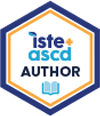

Event Information
Although caring for parents/guardians is not the responsibility of most educators, this session asserts that students on the spectrum benefit exponentially from effective collaboration between school and home. To that end, this session will first look at the kinds of miscommunications and impasses educators often encounter when trying to collaborate with parents and guardians. (~15 minutes)
We will then dig into the varied experiences these parents bring to the conversation, exploring how their personal and intersectional perspectives affect the way they cope with autism and the way they perceive school. The presenter will also gently challenge educators to examine their own biases and perspectives about parents/guardians and autism. (~20 minutes)
Finally, participants will collect empathic strategies to help educators open the lines of communication and establish a reciprocally supportive relationship between home and school. (~10-15 minutes)
Opportunities for participants to share questions, comments, and epiphanies will be included between segments and at the end of the session.
The current prevalence of autism diagnosis, according to the US Centers for Disease Control (as of 2024) is 1 in 36. This means that almost every educator is working with students on the spectrum—and their families. And if they're not now, they will be soon!
This session is best supported by my own books which incorporate most of my research-based data and perspectives. My books are:
• "Disability in the Family: Guidance for Professionals from Parents and Guardians" (Routledge, 2023)
• "The General Education Teacher’s Guide to Autism: Essential Answers to Key Questions" (Solution Tree, 2022)
• "Decoding Autism and Leading the Way to Successful Inclusion" (ASCD, 2020)
• "Autism Spectrum Disorder in the Inclusive Classroom: How to Reach and Teach Students with ASD (Scholastic, 2nd edition 2016; 1st edition 2011)

